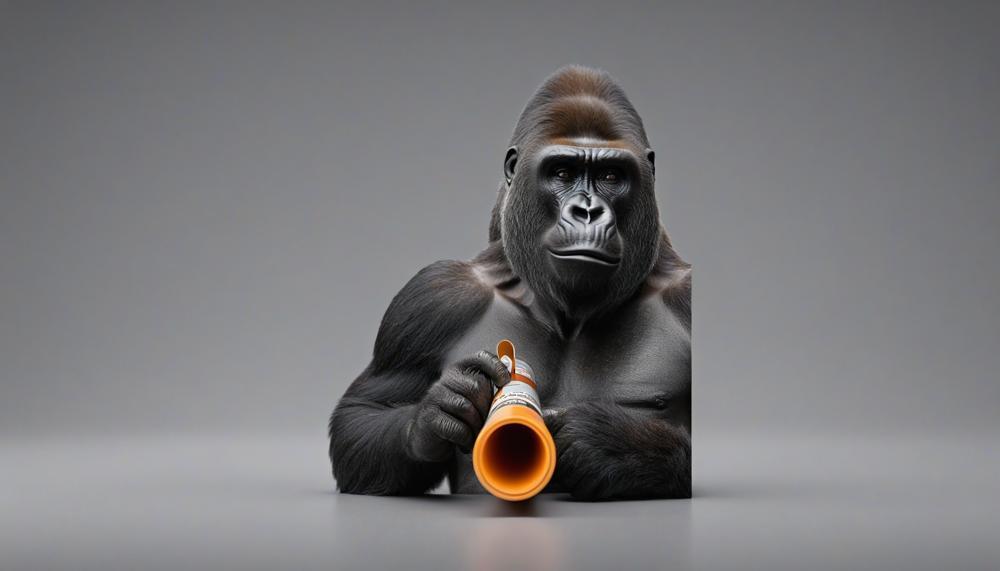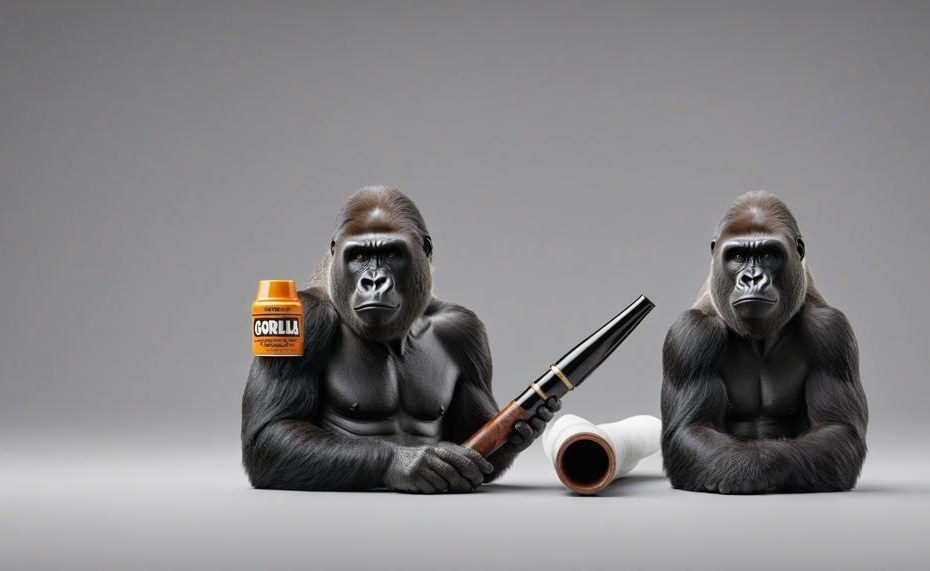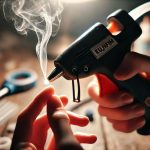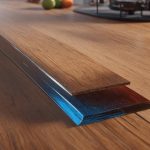The short answer is No. While Gorilla Glue is a fantastic adhesive for many applications, it falls short when it comes to repairing pipes. Here’s why Gorilla Glue isn’t the right choice for this task:
- Water Exposure: Gorilla Glue isn’t built to endure continuous water exposure and pressure found in plumbing.
- Material Bonding: It doesn’t effectively bond with common plumbing materials like PVC or copper.
- Temporary Solution: Even if it holds initially, it won’t provide a lasting repair for plumbing needs.
Fixing a pipe properly is crucial to avoid water damage and costly repairs. This blog post will explore why Gorilla Glue isn’t suitable for plumbing repairs and will guide you on alternative methods to ensure your pipes are fixed correctly and efficiently. Keep reading to safeguard your home from water damage and ensure your plumbing is up to the task.
Key Takeaways:
- Gorilla Glue’s limitations make it unsuitable for fixing pipes.
- Understanding the correct materials and methods for pipe repair is essential.
- Discover reliable alternatives for durable and long-lasting pipe repairs.
Stay tuned to learn the best practices for pipe repairs and why investing in the right tools and materials can save you from a plumbing nightmare.
Table of Contents
Suitable Glues for PVC
The best types of glue for fixing PVC pipes are specifically formulated PVC cements that offer high adherence, bond strength, and resistance to water, heat, and pressure. Here are some top recommendations:
| Glue Type | Features | Suitability |
| Oatey 31018 Hydraulic Cement | Affordable, easy to use, high-strength fix, compatible with various PVC pipes | Ideal for high-impact and water-resistant needs |
| Gorilla PVC Cement | Quick repairs, works on all types of PVC piping | Great for quick, versatile fixes |
| Weld-On PVC Cement | Affordable, good for general repairs and construction | Suitable for everyday PVC pipe bonding |
Regarding the use of Gorilla Glue for PVC pipes:
While Gorilla Glue is known for its strength and versatility, it is not the best option for PVC pipe repairs. Here’s why:
- Limitations: Gorilla Glue may not provide an industrial-strength bond needed for PVC pipes that are under constant pressure or high heat.
- Preparation Needs: Proper surface preparation is essential, including cleaning, roughing up the surface, and ensuring complete dryness.
- Application Challenges: It expands as it cures, which might not be ideal for precise pipe fittings and can lead to weak points.
- Temporary Fix: It’s suitable for temporary or low-pressure fixes but not for permanent solutions, especially in plumbing where water pressure is a factor.
Thus, while Gorilla Glue can be used for bonding PVC pipes in non-critical applications, it’s not recommended for repairing burst water pipes or high-pressure systems.
Why Do You Need to Glue PVC Pipes?
Using PVC glue, also known as PVC cement, offers numerous advantages when fixing pipes:
Airtight and Leak-Proof Bond
PVC glue is formulated to create an airtight seal, preventing any water or air leakage. This is crucial for maintaining the integrity of plumbing systems.
Strong and Durable Connection
The glue works by chemically melting the surface of the PVC pipe and fitting, which then re-hardens to fuse the pieces together. This results in a bond that is nearly as strong as welding metal, ensuring longevity and durability.
Ease of Use
Applying PVC glue is straightforward. It involves a simple process of applying a primer to clean the surfaces, followed by the cement. The pipe and fitting are then joined together, making it accessible even for DIY enthusiasts.
Reliability
Proper use of PVC glue ensures that pipes are securely connected, significantly reducing the risk of future leaks or disconnections.
Versatility
PVC glue is suitable for various residential applications, including water supply lines and drainage systems.
Tips for Gluing PVC Pipes
When fixing PVC pipes with Gorilla Glue, several key considerations will ensure a robust and lasting bond.
Surface Preparation
Clean and roughen the surfaces to be bonded. Any dirt, oil, or debris can weaken the bond. Use sandpaper to create a slightly rough texture.
Dampen the Surface
Gorilla Glue requires moisture to activate. Lightly dampen one of the surfaces with water before applying the glue. Too much moisture can dilute the glue, so just a small amount is needed.
Apply Sparingly
Use a small amount of glue on one of the surfaces. Gorilla Glue expands as it cures, so a thin layer is sufficient. Overapplication can lead to mess and weak bonds.
Press and Hold
After applying the glue, press the surfaces together for 10-45 seconds. Ensure they are aligned correctly during this initial bonding phase.
Clamping
To achieve a strong bond, clamp the glued pieces together for 1-2 hours. If clamping is not possible, place heavy objects to maintain pressure.
Prevent Overflow

Tape around the joint area to prevent the glue from spreading and making a mess. This also helps manage the expanding nature of Gorilla Glue.
Ventilation and Safety
Work in a well-ventilated area and wear gloves to avoid skin irritation. Gorilla Glue can be tough to remove from skin and other surfaces.
Temperature and Pressure Considerations
Be aware of the limitations of Gorilla Glue. It might not hold up under high heat or pressure, making it less ideal for certain plumbing repairs.
Temporary Fix
Gorilla Glue can be a good temporary fix, but consider a more permanent solution for long-term reliability, especially for high-stress applications like water supply lines.
Conclusion
Gorilla Glue, while renowned for its versatility and strength, is not suitable for fixing pipes. The primary reasons are its inability to withstand continuous water exposure and pressure, and its inadequate bonding with common plumbing materials like PVC or copper. Gorilla Glue might hold temporarily, but it won’t provide a durable, long-lasting repair needed for plumbing.
For reliable pipe repairs, specifically formulated PVC cements are the go-to solution. These cements create an airtight, leak-proof bond by chemically melting the surface of the PVC pipe and fitting, then re-hardening to fuse them together. This method ensures a robust and durable connection, essential for maintaining the integrity of plumbing systems.
Using the right PVC glue not only guarantees a strong bond but also simplifies the repair process. It’s straightforward to apply, making it accessible even for DIY enthusiasts, and ensures the pipes remain securely connected, significantly reducing the risk of leaks.
In essence, while Gorilla Glue might offer a quick fix, investing in PVC cement provides the reliability and longevity needed for plumbing repairs.






